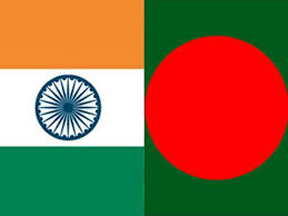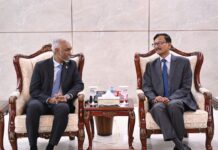 DHAKA: Bangladesh and India have signed a memorandum of understanding (MoU) for enhanced cooperation in the fields of traditional medicine like Ayurveda and Unani, as World Health Organization decided to lay an extra focus on the issue as an “important part of healthcare” in the region.
DHAKA: Bangladesh and India have signed a memorandum of understanding (MoU) for enhanced cooperation in the fields of traditional medicine like Ayurveda and Unani, as World Health Organization decided to lay an extra focus on the issue as an “important part of healthcare” in the region.
The two countries inked the deal here late Tuesday on the sidelines of the WHO’s South-East Asia regional conference where the traditional medicine was one of the major issues of discussion of the 11 health ministers, experts and officials.
Bangladesh’s health officials said under the deal the two sides agreed to exchange all kinds of traditional medicines alongside the experts and physicians for conducting training.
They said recognized institutions of both the countries would provide scholarships to each other in addition to setting up an ‘academic chair’.
Bangladesh’s Health Minister Mohammad Nasim and his Indian counterpart Harsh Vardhan, WHO Director-General Margret Chan among others witnessed the signing of the deal shortly after Prime Minister Sheikh Hasina opened the regional meet of the UN health organisation.
Officials said the deal was signed days after Bangladesh’s cabinet approved the draft.
Talking to PTI on the sidelines of the conference, WHO’s South-East Asia director Dr Poonam Khetrapal Singh said that being the directing and coordinating authority for health within the UN system WHO now considers traditional medicine to be an “important part of healthcare” as most countries in the region have their own form of traditional medicine”.
“Nine of the 11 countries (of WHO’s South-East Asian region) are practising traditional medicine,” she said, adding this reality now prompted the UN health organization harness its potential contribution to health and universal health coverage under its new Tradition Medicine strategy for 2014-2024 period.
Singh said the traditional medicine like Ayurveda, Unani and other herbal treatment systems and homeopathy appeared cheaper, affordable and reliable to many people in the region while WHO regional office planned also to include the yoga as a practice as part of a “composite healthcare system”.
“Generally they do not have side effects (unlike allopathic medicines) and many people also think there are some chronic diseases which could be cured only by the traditional medicine,” she said.–PTI






